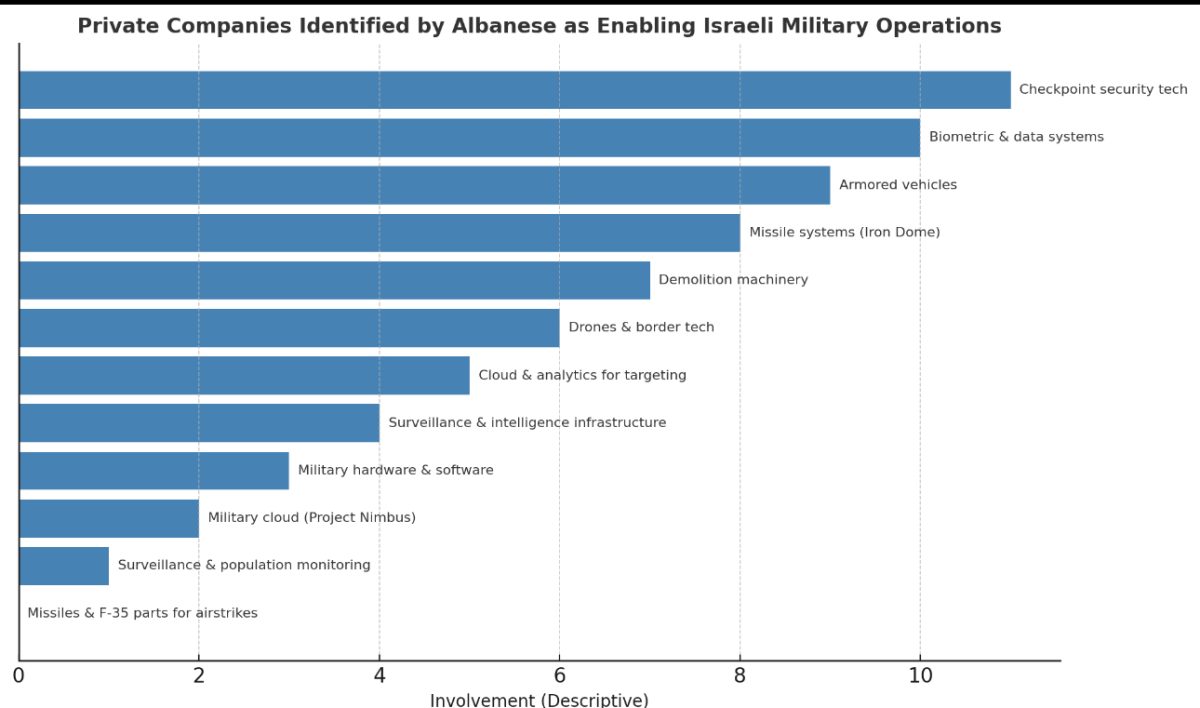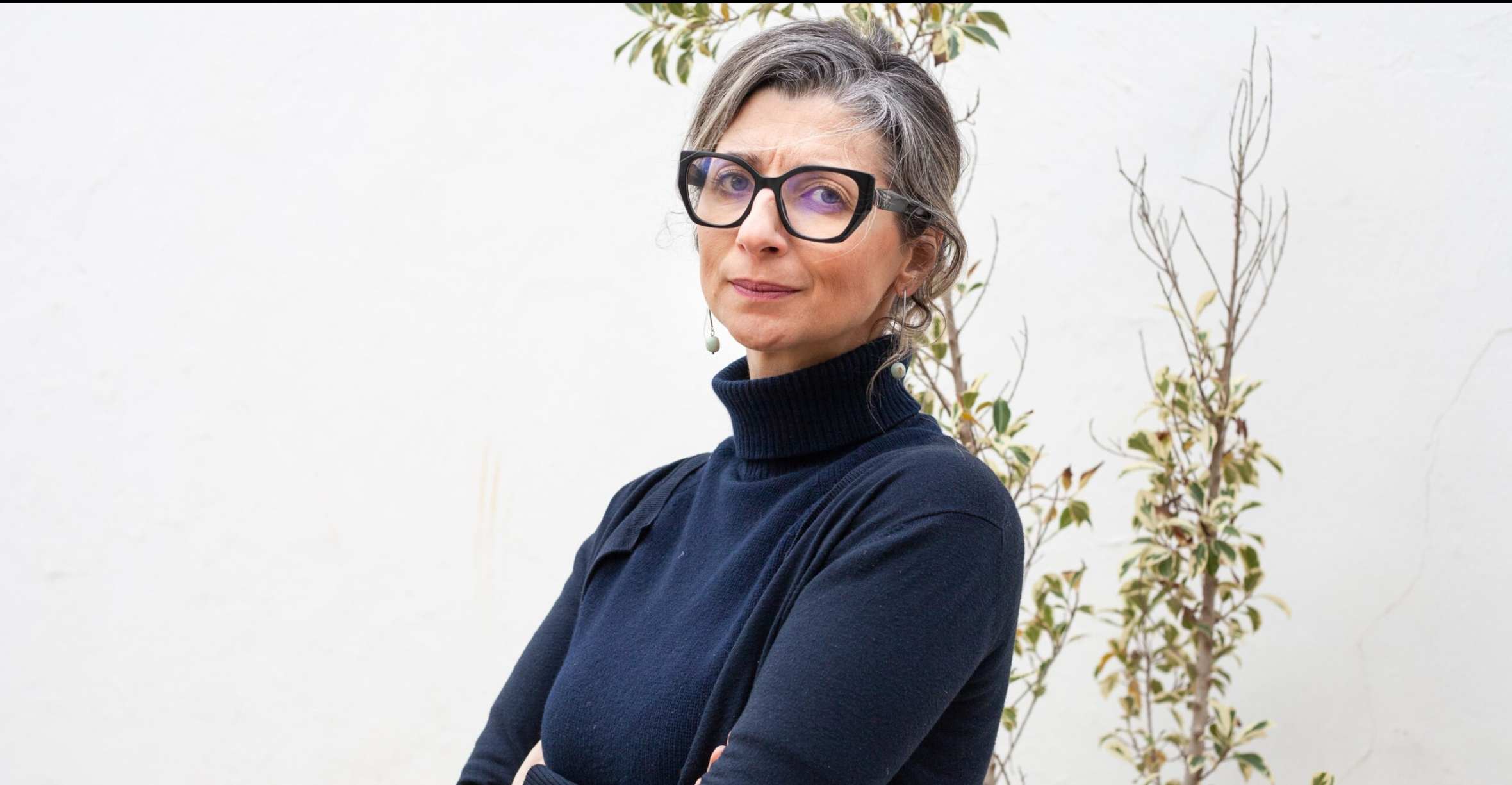In a rare move against a United Nations official, the Trump administration has imposed sanctions on Francesca Albanese, the UN Special Rapporteur on the Occupied Palestinian Territories, following the release of her July 3 report accusing Israel of committing genocide in Gaza.
The administration has also formally requested Albanese’s removal from her post, citing her alleged “support for terrorism” and “efforts to criminalize American companies” involved in commerce with Israel. The report, presented to the UN Human Rights Council, identifies over 60 companies—including 20 based in the United States—as potentially complicit in what she termed “an economy of genocide.”
Who Is Francesca Albanese?
Francesca Albanese is an Italian international lawyer and human rights expert appointed by the UN Human Rights Council in 2022 as the Special Rapporteur on the Occupied Palestinian Territories. She has a background working with the United Nations Relief and Works Agency (UNRWA) and extensive experience in international humanitarian and refugee law.
Albanese has authored legal analyses on the Israeli occupation and Palestinian rights and is known for her vocal advocacy on issues of forced displacement and human rights violations in Gaza and the West Bank.
“Francesca Albanese is a disgrace to the United Nations and a threat to U.S. national security,” stated Acting U.S. Ambassador to the UN Dorothy Shea
Sanctions imposed by the U.S. Department of State freeze Albanese’s American assets, revoke her visa, and bar U.S. entities from cooperating with her or her office. While UN special rapporteurs are appointed by the Human Rights Council and not subject to unilateral removal by a member state, the U.S. has pushed for her dismissal as part of a broader diplomatic campaign.
Legal Claims Backed by Broader International Findings
Albanese’s report has triggered political backlash in Washington, but its findings align with a growing body of concern from international legal and human rights institutions:
- Human Rights Watch documents “serious laws-of-war violations” in Gaza, including indiscriminate bombings, civilian targeting, and destruction of infrastructure essential to survival.1
- Amnesty International concludes Israel’s campaign shows evidence of apartheid and persecution, warning conditions meet multiple genocide indicators.
- The UN Office of the High Commissioner for Human Rights cites credible violations of international humanitarian law and calls for independent criminal accountability.
- In January 2024, the International Court of Justice (ICJ) found South Africa’s genocide case against Israel plausible under the Genocide Convention and issued binding provisional measures to protect civilians.
- The International Criminal Court (ICC) is investigating alleged war crimes by Israeli and Palestinian actors. Although the U.S. does not recognize ICC jurisdiction here, the court retains authority over Gaza as occupied territory under international law.
These findings indicate a convergence among legal experts, UN agencies, and civil society watchdogs that the conflict in Gaza may involve violations of the 1949 Geneva Conventions and international criminal law.
“We are observing the documented stages of genocide,” said Agnès Callamard, Secretary-General of Amnesty International, in a March 2025 press release. “From incitement to destruction of life-sustaining infrastructure, the indicators are serious and well-evidenced.”
Companies Named and the U.S. Response
Albanese’s report builds on this cumulative legal concern, framing the Gaza genocide as a coordinated campaign to forcibly displace and dismantle the Palestinian population and its institutions.
Albanese identified a network of private companies whose products and services she believes enabled or profited from Israeli military operations and settlement expansion in Gaza and the West Bank:
- Lockheed Martin – supplies missiles and F‑35 parts used in airstrikes
- Palantir Technologies – provides surveillance and population-monitoring tools
- Amazon Web Services – hosts military cloud systems via Project Nimbus
- Microsoft – hardware and software supporting military systems
- Alphabet Inc. (Google) – key infrastructure for surveillance and intelligence analysis
- IBM – delivers cloud and analytics critical to military targeting
- Elbit Systems of America – drones and border enforcement technologies
- Caterpillar & Volvo – heavy machinery used for demolitions
- Raytheon Technologies – co-produces missile systems like Iron Dome.
- General Dynamics – supplies armored vehicles
- Hewlett Packard Enterprise (HPE) – provides biometric and data systems
- Motorola Solutions – secures settlement checkpoints
These firms reportedly provide weapons, surveillance, technology, or logistical services supporting operations Albanese describes as violations of international law.

The Trump administration denounced the report as a “BDS-style blacklist” and reaffirmed its importance commitment to protecting American companies from “politically motivated threats.”
“We will not tolerate globalist radicals targeting U.S. businesses for standing with our allies,” President Trump posted on Truth Social.
Civil society groups like Democracy for the Arab World Now (DAWN) and Al-Haq have supported Albanese’s emphasis on corporate accountability, noting potential legal liability under the UN Guiding Principles on Business and Human Rights.
Legal and Diplomatic Implications
The U.S. decision to sanction a sitting UN special rapporteur is unusual and legally contentious. Under international law, UN experts have immunity for actions taken in their official capacity.
Legal scholars argue these sanctions may violate the UN Convention on the Privileges and Immunities of the United Nations, which the U.S. has ratified.
The UN has not acted on the removal request. Albanese’s dismissal would require the Human Rights Council’s intervention—a politically complex and unlikely move amid broad support for her mandate in the Global South and parts of Europe.
“This raises serious concerns about the independence of UN human rights mechanisms,” said Balakrishnan Rajagopal, UN Special Rapporteur on the right to housing.
“Targeting an expert for presenting evidence undermines the role of international law.”
A Pattern of Undermining International Legal Bodies
This is not the first time the U.S. has used sanctions to counter international legal investigations. In 2020, during Trump’s first term, the administration sanctioned senior ICC officials after investigations into alleged U.S. war crimes in Afghanistan and Israeli actions in Palestine.
The sanctions included asset freezes and visa bans against then-ICC Prosecutor Fatou Bensouda and her staff.
Though the Biden administration later lifted these sanctions, the current White House has revived this approach. Trump has openly rejected the ICC’s legitimacy and sharply opposed the court’s 2025 arrest warrant application against Israeli leaders.
Legal analysts observe that the sanctions against Albanese reflect a consistent pattern: treating international scrutiny of U.S. allies as politically motivated and responding with punitive measures.
“Whether it’s the ICC or a UN rapporteur, the U.S. response when its allies face legal scrutiny has been consistent—deflect, discredit, and sanction,” said Kevin Jon Heller, professor of international law at the University of Copenhagen.
The Trump administration’s sanctions on Francesca Albanese highlight an effort to limit international legal scrutiny of Israel’s military conduct and shield American and Israeli firms from potential accountability.
As investigations by the ICC and ICJ continue and experts document the humanitarian situation in Gaza, tensions between national policy and international law are intensifying.
Whether the United Nations defends the independence of its special rapporteurs—or yields to political pressure—may prove pivotal for the future of human rights enforcement.





